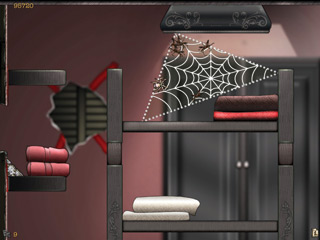Genre-bending English course

Videogames are not a way to avoid homework.
Videogames are the homework. That’s the case for about 70 students in PhD candidate Cindy Poremba’s ENGL 398D Videogame and/as Literature course, offered for the second term in a row through Concordia's Department of English.
The course attracts a broad cross-section of students from political scientists to computer coders to English majors. “I make no apologies, though: this is an English course and I try to teach it the same way you’d see a course on Canadian literature or contemporary poetry,” says Poremba.
Over the semester, students engage in critical and textual analysis, from a range of sources. “While we primarily look at videogames, we also look at some related post-modern novels, poetry and text-based interactive fiction,” Poremba explains. “We spend time interpreting texts, but also look at applying theoretical concepts, and using these experiences to do some creative work of our own.”
Poremba chooses games that don’t require extremely fast or sophisticated computers to ensure everyone can play them. She also has the games installed on computers accessible through the Department of English and Études françaises.
Most of the games Poremba assigns are smaller independent games that can be played in under six hours. From there, students discuss character development, genre, setting and narrative between the various assigned texts. So design majors may be exposed to literary theory for the first time, and poets may be playing their first videogames. Comparing the different pieces and how they fit together leads students to rethink their own assumptions both about games and more traditional literary forms. “It even forces you to rethink some of the presumptions we make about linear text-based literature,” says Poremba.
Putting games under the microscope is precisely why many hardcore gamers have trouble with the course. “The course tends to not work out very well for students who love playing but don’t really want to think about games in much depth, or who have trouble playing games outside of their comfort area,” Poremba says. “Honestly, if you are already playing videogames for 20 hours a week, you just won’t have time for this course.”

Ironically, aside from its focus on videogames, the course has little relationship to Poremba’s own work in the Doctoral Humanities program. In between her current degree and her BA in English, she picked up an MSc in Interactive Arts from Simon Fraser University.
Her research project involves conceiving of videogames in a documentary format. Poremba is thinking about how videogames can be a tool for teaching, or transmitting knowledge. “I am working on how to understand non-fiction through play.”
She is developing a game for the iPhone that reflects on the life and work of reverse graffiti artist Moose Curtis. He doesn’t paint messages onto urban surfaces, but instead erases grime to create reverse messages. Her thesis involves both theoretical reflection on the process and the actual development of the game. “It’s a bit of a challenge to incorporate documentary into a videogame. However, documentary is more than just presenting factual content. It always makes some comment on that material. I am trying to find ways we can use a game to experience and speak about documentary subjects in unique ways.”
Poremba is a member of TAG, the Technoculture, Arts and Games interdisciplinary research group based at Concordia. She is also a member of Kokoromi, an art game collective that both creates and curates experimental games. The group is best known for its “Gamma” events, which feature videogames (selected for their visual impact and the creativity and accessibility of their design) projected on 10-foot screens in conjunction with live DJ performances.
Related links:
• ENGL 398D/02 Fall 2010, Videogames and/as Literature
• TAG
• Cindy Poremba’s personal website
• Kokoromi